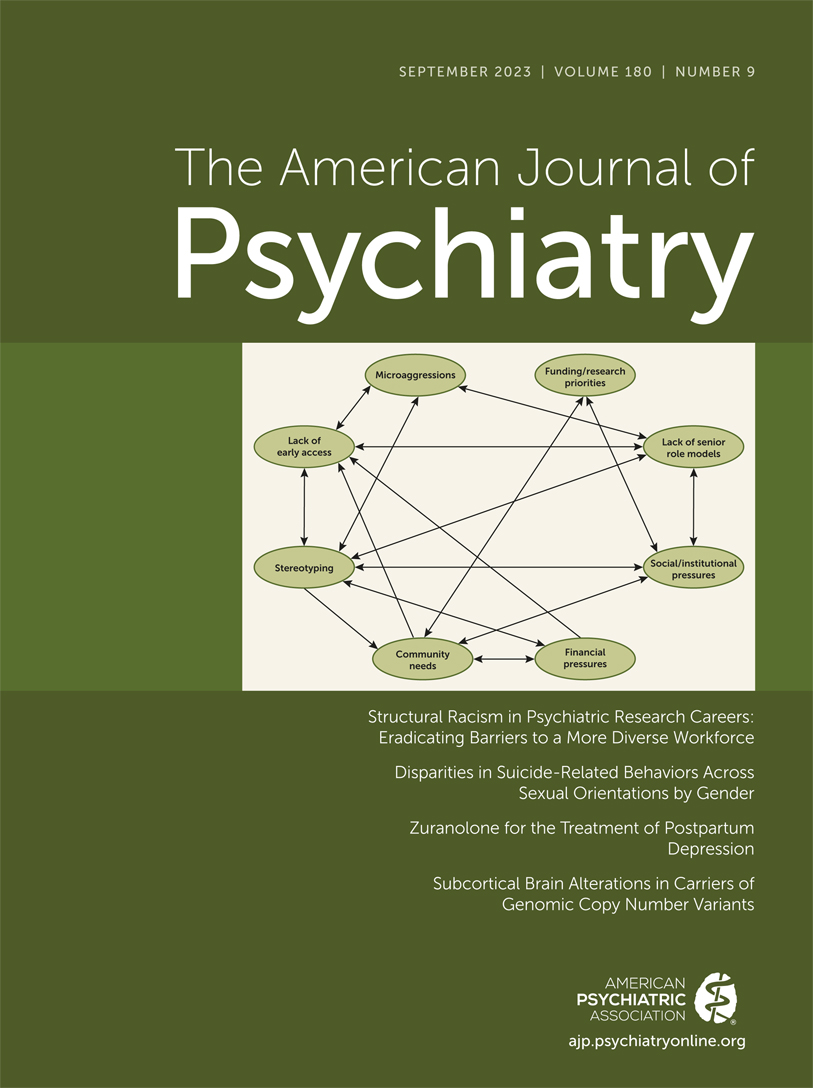Structural Racism in Psychiatric Research Careers: Eradicating Barriers to a More Diverse Workforce
Abstract
Investigators from minoritized backgrounds are underrepresented in psychiatric research. That underrepresentation contributes to disparities in outcomes of access to mental health care. Drawing on lived experience, scholarly qualitative reports, and empirical data, the authors review how the underrepresentation of minoritized researchers arises from interlocking, self-reinforcing effects of structural biases in our research training and funding institutions. Minoritized researchers experience diminished early access to advanced training and opportunities, stereotype threats and microaggressions, isolation due to lack of peers and senior mentors, decreased access to early funding, and unique community and personal financial pressures. These represent structural racism—a system of institutional assumptions and practices that perpetuates race-based disparities, in spite of those institutions’ efforts to increase diversity and in contradiction to the values that academic leaders outwardly espouse. The authors further review potential approaches to reversing these structural biases, including undergraduate-focused research experiences, financial support for faculty who lead training/mentoring programs, targeted mentoring through scholarly societies, better use of federal diversity supplement funding, support for scientific reentry, cohort building, diversity efforts targeting senior leadership, and rigorous examination of hiring, compensation, and promotion practices. Several of these approaches have empirically proven best practices and models for dissemination. If implemented alongside outcome measurement, they have the potential to reverse decades of structural bias in psychiatry and psychiatric research.
Access content
To read the fulltext, please use one of the options below to sign in or purchase access.- Personal login
- Institutional Login
- Sign in via OpenAthens
- Register for access
-
Please login/register if you wish to pair your device and check access availability.
Not a subscriber?
PsychiatryOnline subscription options offer access to the DSM-5 library, books, journals, CME, and patient resources. This all-in-one virtual library provides psychiatrists and mental health professionals with key resources for diagnosis, treatment, research, and professional development.
Need more help? PsychiatryOnline Customer Service may be reached by emailing [email protected] or by calling 800-368-5777 (in the U.S.) or 703-907-7322 (outside the U.S.).



